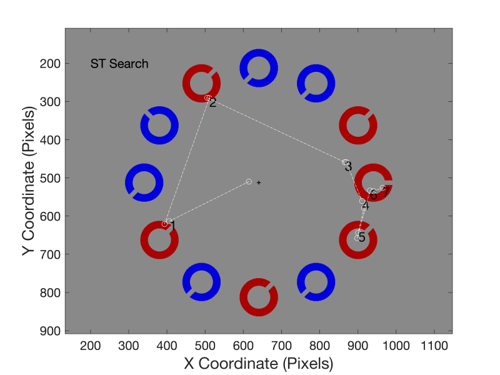Older people may find it more challenging to search for relevant information on laptops and mobile phones, according to a new study by researchers at the University of the West of Scotland (UWS) and the University of Leicester.
Previous research has shown search is a complex process involving visual input as well as abilities such as short- and long-term memory. These abilities are affected by ageing, with changes in the visual pathway and brain affecting the quality and speed of the search. Older people may often compensate for these changes by relying on experience to predict where visual objects are likely to be found.

The new study found that older adults are less likely to use information about the target’s colour to restrict eye movements to areas most likely to contain the target during search. This increases the time it takes for older people to find a target compared to young adults.
Doug Barrett, Lecturer in Psychology at the University of Leicester and study lead said:
“This study provides important insights into the way ageing affects individual’s ability to integrate information and coordinate eye movements to maximise the efficiency of search. We have shown that searching cluttered visual scenes to identify and select relevant information is more difficult for older people.”
Claire Hutchinson, Professor of Psychology at UWS said:
“We have shown that searching cluttered visual scenes to identify and select relevant information is more difficult for older people. We hope these findings will broaden understanding that older adults might encounter problems when navigating our increasingly visually complex, digital world. For example, although effortless for the young, everyday tasks like buying a train ticket on a self-service ticket machine are likely to be much more challenging in older age.”
The researchers hope that studies such as this will provide important insights into the best ways to design visual displays and search strategies to support older adults.